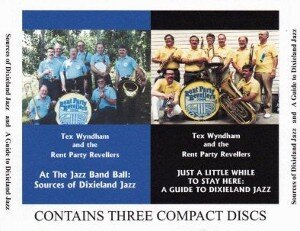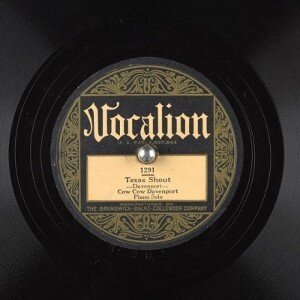 Set forth below is the sixty-ninth “Texas Shout” column. It first appeared in the February 1996 issue of TAR. The text has not been updated.
Set forth below is the sixty-ninth “Texas Shout” column. It first appeared in the February 1996 issue of TAR. The text has not been updated.
I doubt that many of you think of an organized band in terms of its substitutes. However, substitutes are among the most critical elements needed to sustain a combo’s viability.
Show business is probably subject to more uncertainties than most occupations. Even in the ranks of full-time professional outfits, sidemen come and go without much warning and occasional emergencies require a fill-in.
This situation is exacerbated with respect to Dixieland, which is almost entirely a part-time affair, even for many of its top names. The limitations imposed by one’s day job (particularly getting enough vacation time to play out of town) as well as the other claims of personal life often interfere with musicians’ ability to take gigs, even very attractive ones.
Jobs don’t grow on trees these days for Dixieland bands. Thus, any leader needs to cultivate a stable of qualified backups, people who can step in without lowering the quality of the show which his/her band’s clients have come to expect. If you can’t find them, either the standard of your performance (and maybe your reputation) takes a beating or, just possibly, you’ll have to turn down some work for lack of players.
Locating such subs isn’t easy. There aren’t as many people as there used to be who know how to play idiomatic Dixieland at all, let alone play it well. Even for groups that operate essentially on a jam basis, everyone needs to feel comfortable – both stylistically and personality-wise – with all of the sidemen/women if the team is going to jell. Further, many of today’s combos perform uncommon selections or use intricate routines that can’t be grasped on the fly, no matter how talented the substitute.
Thus, an intelligent band tries to establish an environment that will make outsiders want to work with it and want to return after the experience. After all, if you’re not satisfied with the sub, you can always put him/her lower on your call list. However, if he/she is a hobbyist, playing to a large extent for fun, and is so uncomfortable on your gig that he/she won’t take another with you, your options are narrowed.
Similarly, on those (hopefully few) occasions when a regular member has to be replaced, the leader should make every effort to handle the changeover without creating the kind of bridge-burning ill feeling that will make it impossible to use the musician as a sub in the future. Why cut yourself off from someone who knows your routines?
Anyone subbing with my Red Lion Jazz Band gets the red carpet treatment from all hands. We try to include the new face in our between-set conversation, make his/her companion feel at home, never criticize the sub’s performance, always end the evening assuring him/her that he/she did a great job, etc. If the gig’s budget allows and the substitute has come very far, we try to toss a few extra bucks in his/her direction to cover some of the gasoline and/or tolls.
One would think these principles would go without saying. However, things don’t always work that way.
One time I was called to play cornet with a relatively new group. One of my front-line companions apparently had become so used to the way his regular lead man phrased everything that he became unsettled when he didn’t hear me playing the familiar notes at the familiar volume and attack.
After virtually every phrase, I was getting sotto voce instructions to play louder, softer, this way, that way, etc. Of course, I tried my best to comply. After all, a substitute is supposed to help the band put on its best show; any advice the regulars can offer in furtherance of that purpose is most welcome as far as I’m concerned. However, I soon realized that my colleague had impossible expectations. Moreover, he was driving me up the wall and ruining my evening.
I could have bitten my tongue, counted the hours until closing, and then elected to be otherwise engaged on subsequent calls from that crew. However, I decided that the problem was essentially due to the group’s inexperience. So, to try to point it in the right direction for the future and to save my sanity for the time being, I got the leader and one of his more seasoned sidemen in a corner at the second break.
I told them what was going on and the effect it was having on me. I said that if they weren’t happy with my performance, they were perfectly free to drop me from their substitute list. I repeated the request that I always make when filling in, that if I’m not doing something the way they prefer it, let me know and I’ll do my best to change it.
But I also said that I was tired of having a sideman constantly whisper in my ear that there was something wrong with everything I was doing. I observed that the gig was turning into the job from Hell, and that, unless the scene brightened fairly quickly, they should not expect me to be interested in playing with them again. I closed with my view that, if they are going to treat their substitutes this way, no capable musician would be willing to put up with it a second time.
To their credit, my friends appreciated the advice. They got the situation cured on the spot. We all enjoyed a cordial relationship thereafter. In fact, I continued to sub with them until, their key players having moved away, the group disbanded.
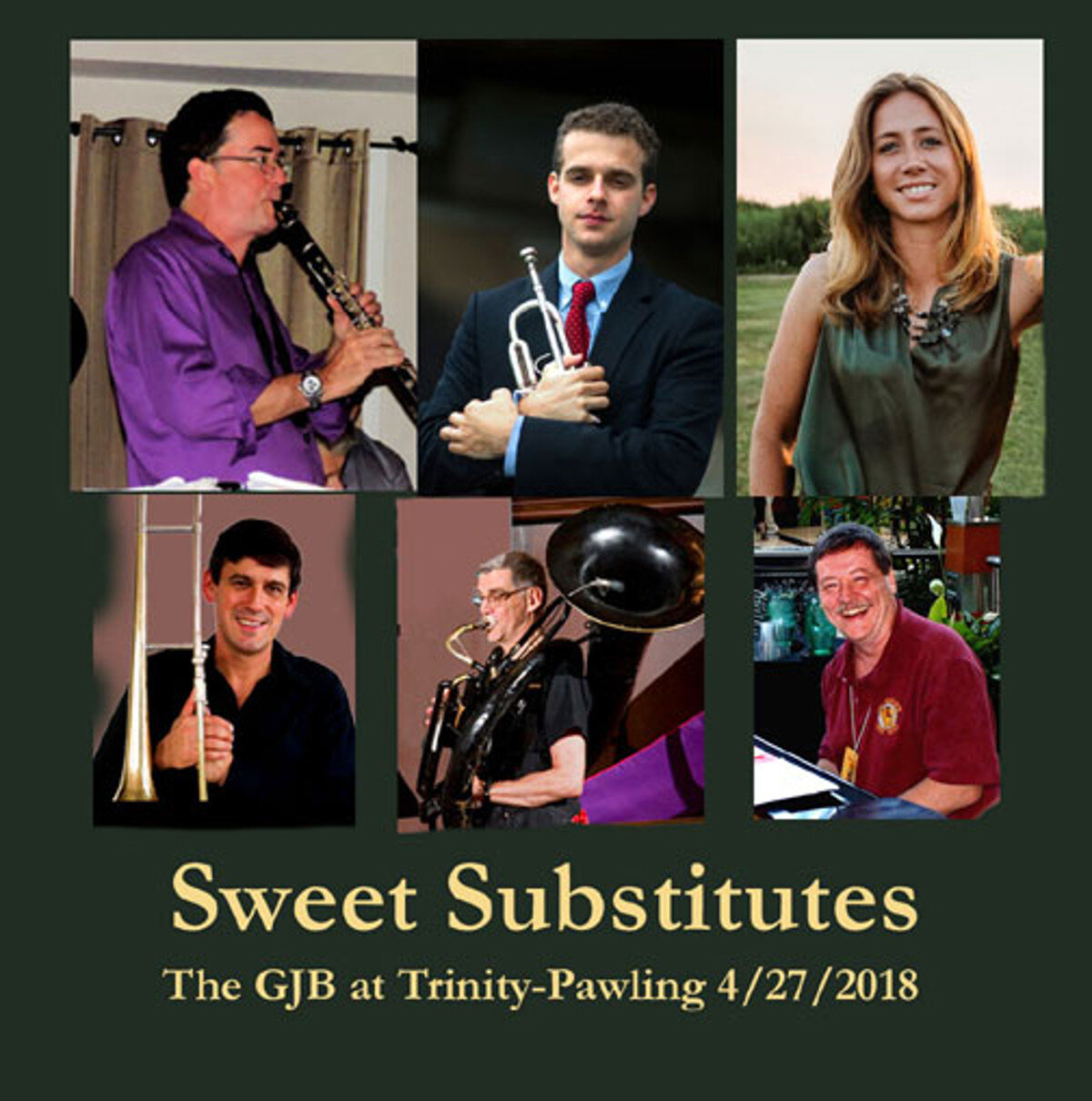
You can’t avoid the need for substitutes. Even with The Rent Party Revellers, a band that was formed to play just a few festivals/cruises a year which would be contracted far in advance, we soon learned that, if we were going to book even an abbreviated schedule, we had to bring additional sidemen into the project to deal with conflicts caused by our personal lives and local band commitments.
The Revellers are an eight-piece band. However, at this writing, there are sixteen sidemen/women on our mailing list, top players who are current on all our lead sheets and routines so that we can play with any combination of them without having to change our act or suffer a deterioration in its quality.
(For those who are interested, when we get a gig the Revellers fill the chairs strictly on the basis of seniority with the band. Every hand is a first-rank performer, so it would be senseless to try to choose among them on any other basis.)
My Red Lion Jazz Band works with a number of local musicians who will fill in, or sometimes just drop in, on our Tuesday night rehearsals. We thereby have the luxury of drawing our substitutes from a pool of artists who know our routines.
Some bandleaders will take a gig if they’re not engaged personally and then put the band together from available sidemen. I don’t work that way. Whether it’s the Revellers or the Red Lions, I always tell the client that I’ll call back to confirm as soon as I have the others lined up.
I won’t take any chances. If I take a gig, I want to know in advance that I can deliver a band that will perform up to snuff. As a result, I have (fortunately rarely) elected to turn down a gig because I couldn’t put together a team that satisfied me.
Conversely, I have occasionally had clients who want to dictate which sidemen I should hire for their gigs. I won’t let them do so, responding that, when they contract for the Red Lions or the Revellers, what they’re entitled to is a band that will deliver the kind of show for which those groups have become known. It’s my job to fulfill that promise and how I do so is strictly up to me.
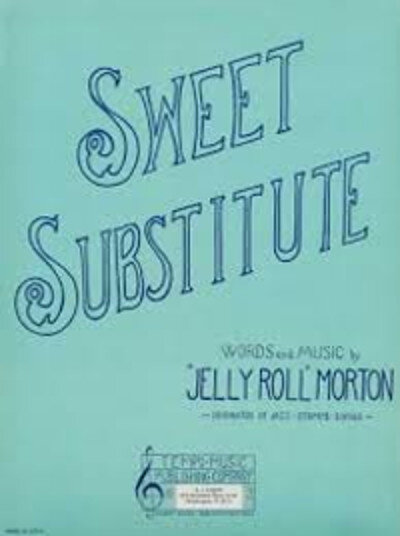 Of course, when I make up a tune list, I keep in mind the musicians who are booked for the job. Some titles have routines that play to a certain substitute’s strong points, so I’ll program those. I make sure that, if any tricky material is planned, I’ll have time between sets, between numbers, or even during the rides, to get the proper cues to the fill-in so that everything goes smoothly.
Of course, when I make up a tune list, I keep in mind the musicians who are booked for the job. Some titles have routines that play to a certain substitute’s strong points, so I’ll program those. I make sure that, if any tricky material is planned, I’ll have time between sets, between numbers, or even during the rides, to get the proper cues to the fill-in so that everything goes smoothly.
On rare occasions, I have encountered a festival that tries to exert a sort of quality control by including a clause in its contracts that purports to give the festival some say in the band’s choice of substitutes. I can understand the producer’s desire to insure that the festival gets a group whose performance will be consistent with its reputation or its audition tape.
However, once it’s hired a band, a festival usually has only one legitimate interest at stake and that is to be sure that it stays within its budget. If a substitute becomes necessary, the festival has a right to expect that the substitution will not significantly increase the amount it intended to pay for the band. For example, a bandleader should not be surprised if a festival refuses to pay transportation involved in replacing a local musician with one who lives across the country, or replacing a journeyman performer with an internationally known artist whose fee is much higher.
Beyond that point, I think a festival is out of line if it tries to dictate sidemen to a bandleader on artistic grounds. If it has begun advertising the band, it has little choice but to let the leader go with the replacement with whom he/she is most comfortable.
If it hasn’t placed ads, the festival might elect to cancel the band’s invitation if it isn’t happy with the substitute. Before doing so, though, it should weigh the effect that such an action is likely to have on its relations with bands it wants to book in the future, knowing that, as mentioned above, occasional substitutes are inevitable in today’s scene. Besides, the festival should recognize that it and the leader are really on the same side when substitution becomes necessary – both want to give the audience the best show possible in the circumstances.
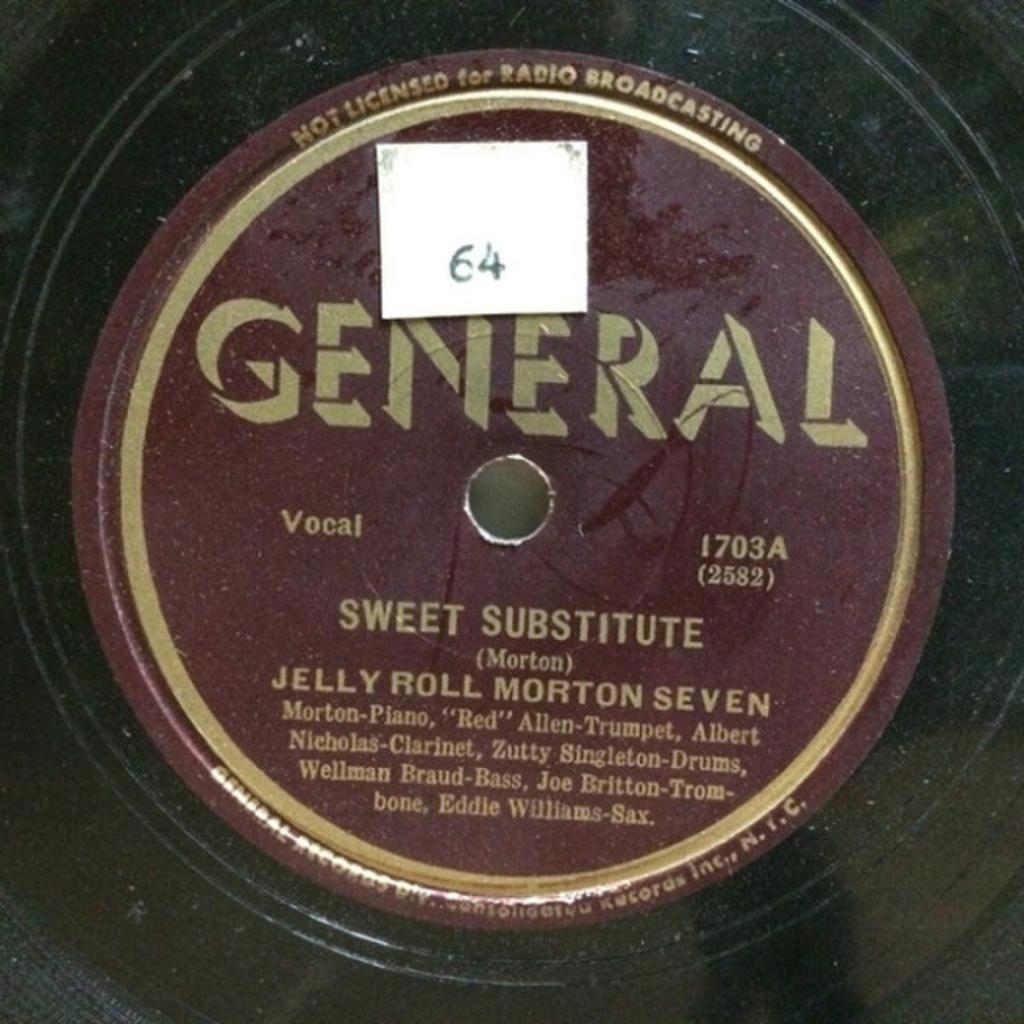 Does a Dixieland band sound different with a new face in it? Of course it does. Given the significant degree of improvisation in most Dixieland performances, some change in sound is unavoidable.
Does a Dixieland band sound different with a new face in it? Of course it does. Given the significant degree of improvisation in most Dixieland performances, some change in sound is unavoidable.
However, different doesn’t mean better or worse. Eddie Condon‘s groups with Bobby Hackett on lead didn’t come on the same way as those with Wild Bill Davison, Max Kaminsky, Muggsy Spanier or Johnny Windhurst, but they all rendered red-hot, top-drawer Chicago style jazz. That’s the only thing that counts.
Again, one would think those points are self-evident. However, some time ago, I read a letter of complaint by someone who had attended a festival set by one of the country’s top units, one which for that particular weekend had two musicians replacing its regular sidemen. Both of them were highly talented artists, well known on the circuit.
The complainant believed that he had somehow been misled. He was unable to make his peace with the changed lineup and was blaming the band and the festival. As I recall, he said something to the effect that the band shouldn’t have taken the gig, or that it shouldn’t have been advertised under its usual name, or that prospective attendees should somehow have received advance notice that violence had been done to the group’s usual personnel.
This view is totally unrealistic. In the current scene, there is simply no way to avoid the need for a substitute from time to time.
You judge a band by whether it plays well and gives you a good show, regardless of who’s in it, recognizing that the ensemble will be affected to some extent by any change in personnel. If it fails to produce those things, for whatever reason, then your remedy is to stop going to see it.
If it fails often enough, producers will stop hiring it, regardless of the lineup proposed for any particular gig. Indeed, I can think of one artist who regularly brings out bands made up of the best musicians in his branch of Dixieland, but in poorly organized pickup jam bands whose shows have been so uneven that at least some festivals have put his name rather far down the call list.
By the way, with respect to the individual cited above who complained so vociferously about substitutes, Nancy and I happened to attend that festival and to have heard a set by the band in question. The subs were so skilled, and so compatible with the regulars, that we regarded the program as the best thing we saw during the weekend.
I can’t help but conclude that the complainer was listening with his eyes, not his ears, and that as soon as he saw new faces on the bandstand he made up his mind in advance that the show would be unacceptable. All I can say is, if you can’t handle a band that uses a substitute from time to time, you’re not going to be hearing much Dixieland over the long haul.
* * * * *
The following note was added when this column was reprinted in March 2004.
As I prepared this column for reprinting I realized that, for reasons that have nothing to do with the music, and everything to do with the passage of time, circumstances have overtaken this discussion to a considerable degree. The overwhelming majority of the Dixieland musicians currently onstage at festivals, jazz societies and concerts, have, for quite some time now, been collecting Social Security and benefiting from senior citizen discounts.
These folks are retired and, in some cases, have moved considerable distances to retirement locales. The bands with which they had been playing must find a new sideman/woman for local gigs and will usually be using that replacement going forward for all occasions.
Similarly, these jazzmen/women are of an age at which major health problems are much more prevalent than in the public generally. Dixielanders and their spouses are not immune therefrom, so we now regularly encounter instances where, at the last minute, a performer is prevented from appearing for health reasons.
I can probably count on my fingers the number of Dixieland bands that currently show up on the circuit nearly all the time with every one of their first-call players. Substitutes are the order of the day now. In fact, it isn’t that rare these days for a combo to arrive short-handed as a result of some last-minute crisis, recruiting someone from the other bands on the bill to fill in the gaps for the weekend. Thus, the closing sentence in the above reprint can now be updated to read “…. you’re not going to be hearing any live Dixieland over the long haul.”
 Want to read ahead? Buy the book!
Want to read ahead? Buy the book!
The full run of “Texas Shout” has been collected into a lavishly illustrated trade paperback entitled Texas Shout: How Dixieland Jazz Works. This book is available @ $20.00 plus $2.95 shipping from Tex Wyndham, On request, Tex will autograph the book and add a personalized note (be sure to tell him to whom the note should be addressed).
Tex Wyndham’s 3 CD Guide to Dixieland with music and commentary is available for $20 plus $2.95 shipping. The separate CD, A History of Ragtime: Tex Wyndham Live At Santa Rosa, is available for $13.00 plus $2.00 shipping. On request, Tex will autograph the inner sleeve and add a personalized note (be sure to tell him to whom the note should be addressed).
Send payment to Tex Wyndham, P.O. Box 831, Mendenhall, PA 19357, Phone (610) 388-6330.
Note: All links, pictures, videos or graphics accompanying the Shouts were added at the discretion of the Syncopated Times editorial staff. They did not accompany the original columns and do not necessarily reflect the opinion of Tex Wyndham.
From roughly 1970-2010, Tex Wyndham was: (1) one of the best-known revivalist Dixieland jazz musicians in the US, as cornetist, pianist and bandleader, (2) one of the best-known ragtime pianists in the US, and (3) one of the most respected critics in the US of Dixieland jazz, ragtime, and related music. He is the only person about whom all three of those statements can be made.






